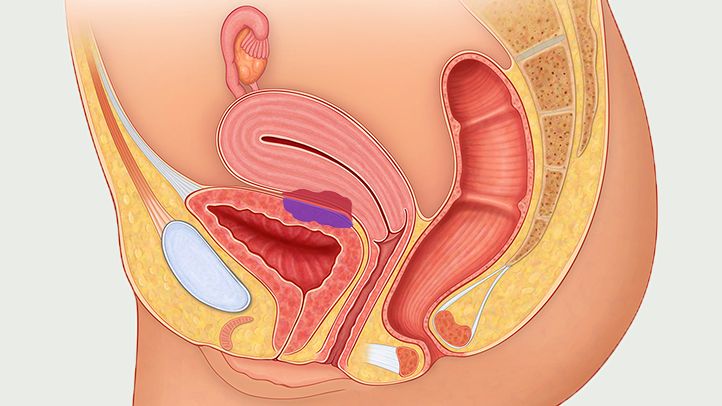
What Is Endometriosis, Its Causes, And Symptoms
Endometriosis refers to a painful disorder. In this disorder, the tissues that normally grow inside your uterus, the endometrium, start growing outside of the uterus. This condition commonly involves the fallopian tube, ovaries, and the lining of tissues present in the pelvis.
The endometrial-like tissue acts as endometrial acts in endometriosis. It becomes thicken, then it breaks down to bleed with every menstrual cycle. The problematic thing is that this tissue has no specific way to get outside of your body.
It starts trapping inside your body. When endometriosis involves the area of your ovaries, then a cyst may start developing named endometriomas. Surrounding tissue develops adhesions and scars. That’s the reason it becomes irritated for women.
It also produces fibrous tissue bands that are abnormal. These bands cause organs and pelvic tissues to stick to each other. Endometriosis includes pain that gets severe sometimes especially when you have your menstrual periods.
In this way, this condition develops problems of fertility in women. Fortunately, there are some effective treatments available for endometriosis.
Symptoms Of Endometriosis
Pelvic pain is the primary symptom of endometriosis that is associated with the menstrual periods. Many women complain about having cramps during their menstrual periods who suffer from endometriosis. They describe the menstrual pain that is more severe and worse than usual.
Pain does not disappear. It increases with the duration of time. Some common symptoms and signs of endometriosis are:
- Painful Periods: It is also known as dysmenorrhea. Cramping and pelvic pain starts before the menstrual periods and extends for many days. You may also suffer lower abdominal and back pain.
- Pain With Intercourse: Pain after or during sexual intercourse is common with this condition.
- Excessive Bleeding: You may suffer occasional heavy menstrual bleeding between your periods.
- Infertility: Sometimes doctors diagnose endometriosis in women who are already taking treatment for infertility.
- Other Symptoms: You may also experience nausea or bloating, diarrhea, constipation, or fatigue during your menstrual period with endometriosis.
The severity of the pain cannot be considered as a reliable indicator for this condition. You may have a mild level of endometriosis with more severe pain or you may suffer from advanced endometriosis with no pain or light intensity of pain.
Sometimes endometriosis is mistaken for certain other medical conditions that can lead to pelvic pain, ovarian cysts, and pelvic inflammatory disease. It may also be confused with a condition that causes, abdominal cramping, constipation, and bouts of diarrhea know as irritable bowel syndrome.
This syndrome can occur with endometriosis. It makes your situation more complicated.
Causes Of Endometriosis
The exact causes of endometriosis is still unknown. The possible causes are given below.
- Retrograge Menstruation
Menstrual blood that has the cells of endometrial flows back into the pelvic cavity through the fallopian tubes in retrograde menstruation. This blood should get out of the woman’s body. The endometrial cells start sticking to the surfaces of some pelvic organs and pelvic walls.
They continue to become thick and grow at these places. These cells bleed during each menstrual cycle.
- Peritoneal Cells Transformation
Some immune factors and hormones work to promote the transformation of peritoneal cells into cells that are endometrial-like. These cells line the abdomen’s inner side.
- Embryonic Cell Transformation
Some hormones like estrogen may work to transform the embryonic cells into certain endometrial-like cells.
- Surgical Scar Implantation
Some endometrial cells become attached to the surgical incision after a C-section or hysterectomy.
- Endometrial Cell Transport
The tissue fluid system or blood vessels may start transporting endometrial cells into different parts of your body in this condition.
- Immune System Disorder
Immune system problems make your body unable to identify and fight with the endometrial-like tissues that grow outside the area odd your uterus.
Risk Factors
Some risk factors make you vulnerable to develop endometriosis like:
- Never giving birth
- Getting periods at an early age
- Short menstrual cycles, for example less than 27 days
- Going through the phase of menopause at an older age
- Having periods for more than 7 days
- Greater estrogen levels in the body or lifetime exposure to this hormone
- Low body mass index
- Family history of endometriosis
- Any medical conditions that inhibit the normal menstrual flow
- Abnormalities of the reproductive tract
See your doctor immediately if you are going through the symptoms of endometriosis. Early diagnosis can help you to get the fastest recovery.
